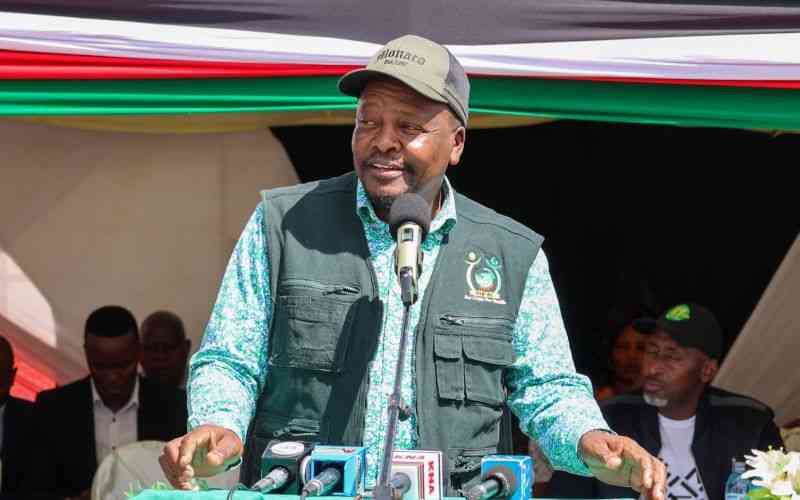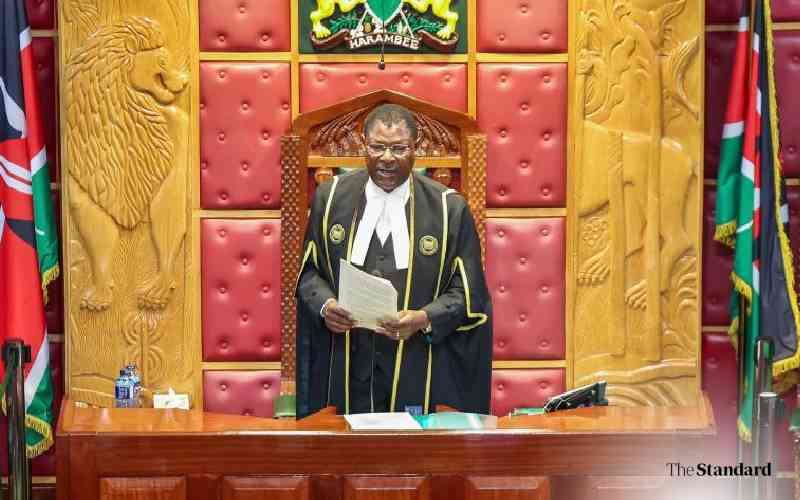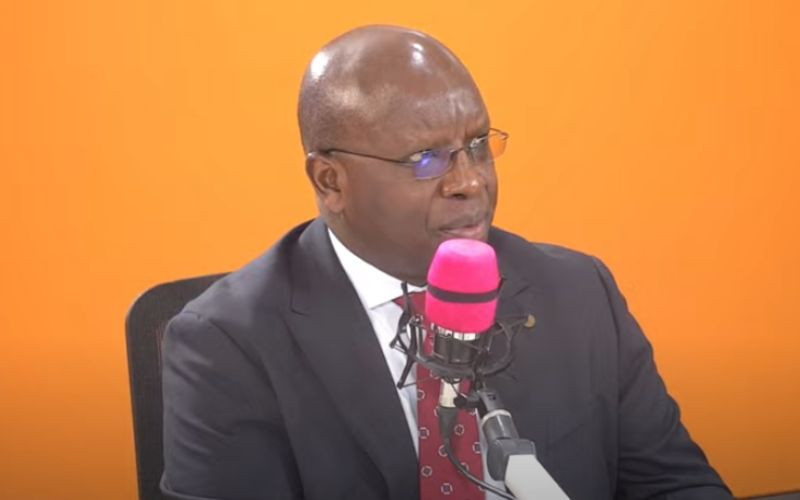 |
|
Agriculture Cabinet Secretary Felix Koskei (right) Kenya has been experiencing challenges of availability of fertilisers. [PHOTO: FILE/STANDARD] |
By NICHOLAS WAITATHU
The government has embarked on a process to secure a strategic investor to help establish a fertiliser manufacturing plant in the country.
It reckons that by establishing the facility, the cost of fertiliser will bereduced significantly and thus enables farmers to easily acquire the material essential to the growth of crops.
Local and international fertiliser manufacturing companies have up to October 17, 2013 to submit to the government expression of interest to be allowed to undertake the assignment.
For several years, government and private sector have been mulling over establishing a fertiliser plant to enable farmers procure the product cheaply and be enabled to produce more food to feed the increasing population.
The government action to invite private sector follows last month’s visit to Russia and China by President Uhuru Kenyatta and subsequent visit by Cabinet secretary Felix Koskei who engaged fertiliser producers to strengthen government efforts to procure fertiliser direct from the manufacturers.
The government engaged a consultant to carry out a feasibility study on the possibility of establishing the plant in Kenya and in the East African region in 2011.
The consultant concluded the study recently and recommended establishment of the manufacturing facility.
Final report
“The consultant has submitted the final report indicating that fertiliser manufacturing in the country is viable, “says an advertisement placed in local dailies last week by Ministry of Agriculture, Livestock and Fisheries.
The decision by government to pursue the idea of setting up a plant is informed by the sufferings a number of farmers have been experiencing in terms of high cost of fertilisers.
The ministry observed that the country has been experiencing challenges of availability of fertilisers hence the decision to establish a fertiliser manufacturing plant.
“The government has made fertiliser cost reduction a major focus to manage escalating cost on food production improve food security,” the advert said in part.
The strategic investor to be engaged ought to be a reputable fertiliser-manufacturing firm with extensive experience in production of quantities of Diammonium Phosphate (DAP, 18:46:0) and Calcium Ammonium Nitratte, (CAN, 26%N).
It should also be knowledgeable in the manufacturing of Chemically Compounded NPK 17:17:17, Chemically Compounded NPK 23:23:0 and Urea (46%N).
Stay informed. Subscribe to our newsletter
Every year, farmers use over 500,000 metric tonnes of fertilisers, with government only providing a third of the quantity through the subsidy programme while the rest is supplied by the private sector. Prices of the manure from the private sector are generally high.
Recently in an interview Fertiliser Association of Kenya Chairman Eustace Muriuki said a 50kg bag of government-subsided DAP costs Sh2, 500, while CAN is sold at Sh1, 500.
Private sector
The private sector sells DAP at about Sh3, 200 in Kitale and Eldoret, with CAN in the same region costing Sh2, 100. But subsided fertiliser is fered at lower prices compared to rates charged by private sector.
 The Standard Group Plc is a
multi-media organization with investments in media platforms spanning newspaper
print operations, television, radio broadcasting, digital and online services. The
Standard Group is recognized as a leading multi-media house in Kenya with a key
influence in matters of national and international interest.
The Standard Group Plc is a
multi-media organization with investments in media platforms spanning newspaper
print operations, television, radio broadcasting, digital and online services. The
Standard Group is recognized as a leading multi-media house in Kenya with a key
influence in matters of national and international interest.
 The Standard Group Plc is a
multi-media organization with investments in media platforms spanning newspaper
print operations, television, radio broadcasting, digital and online services. The
Standard Group is recognized as a leading multi-media house in Kenya with a key
influence in matters of national and international interest.
The Standard Group Plc is a
multi-media organization with investments in media platforms spanning newspaper
print operations, television, radio broadcasting, digital and online services. The
Standard Group is recognized as a leading multi-media house in Kenya with a key
influence in matters of national and international interest.






